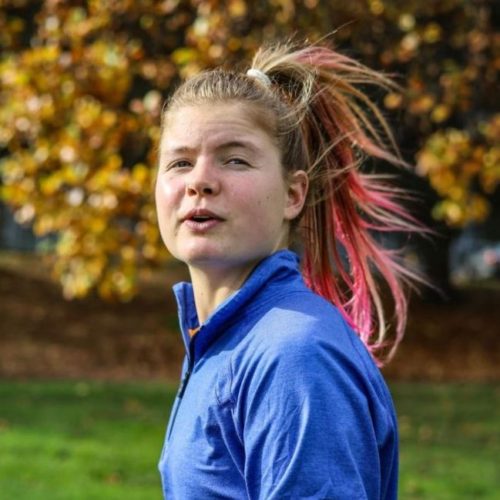Watch the video below to hear my thoughts on my 2015, true freshman, xc season. I honestly still can’t believe that I was able to hang with Molly Seidel, so it’s fun to reminisce on this season and the shocking success that I had. The thing that shocks me the most is the jump I experienced from high school xc to collegiate xc. Obviously there are a lot of reasons that contributed to this (which I cover in the video), but I wanted to take some more time to dive into the differences between high school and college training.
- Frequency of Hard Efforts: In high school, I would do 2 hard workouts PLUS a race per week whereas in college, we would do a total of 2 hard efforts per week (including races). Having fewer workouts per week allowed me to recover fully and get more out of each effort.
- Intensity of Workouts: High school workouts were nearly all-out efforts. My training partners were the best guys on the team. While I loved the challenge that trying to keep up with them provided, it also resulted in me basically racing every workout. In college, I had a great group of women to workout with, and the paces and effort that I worked out at made sense for the goal of the session. This kept me feeling fresh and excited to put out bigger efforts on race day.
- Intentionality of Training: As I mentioned above, high school workouts followed the mentality of “work harder and you’ll get better”, which is great, but really not the most efficient way to increase fitness. In college, each workout had a specific goal (improve threshold or VO2Max, practice race pace, increase running economy, etc) which meant I wasn’t putting 100% effort into every session. I was only putting in the effort required to reap the specific training goal. This helped me to get more out of my training without being constantly fatigued.
Overall, I loved both high school and college training, but I think it’s important to note that I performed much better off of easier training. This follows the dogma of “work smarter, not harder.” While I wish that more effort always resulted in improved fitness, this simply is not the case. It’s imperative to performance to closely evaluate the purpose of each workout and execute it with that purpose in mind.




















